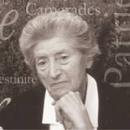Lucie Aubrac

Lucie Aubrac, the feminine embodiment of French Resistance, was born Lucie Bernard on June 19, 1912, to a family of winemakers in Burgundy. The Great War haunted her for life. Her missing father was found in 1921 in an asylum in Lyon, a victim of amnesia.
In 1929, she refused to join the Normal School for Teacher to which she had been admitted, moved to Paris, joined the Communist Youth, and began reading history in college. In 1932, she sought to learn German by working as an au pair in the country.
There, she got her first taste of anti-semitism – all the more violently since her last name had many believe she was Jewish. In 1938, she became an Associate Professor of History and began teaching in Strasbourg, where she met Raymond Samuel (known as “Aubrac” in the Resistance), who was then mobilized as an Army Engineer. She married him on December 14, 1939.
In August, 1940, she organized the escape of her husband, jailed by the enemy in Sarrebourg. In the fall of the same year, she joined a clandestine group led by Emmanuel Astier de la Vigerie, “The Last Column,” part of the Libération-Sud network. While working on the staff of Libération, the group’s newspaper – first published in July, 1941- she gave birth to her first son, Jean-Pierre. Living in Lyon since her husband’s escape, Lucie Aubrac taught at the Edgar-Quinet High School for girls, but was dismissed when her Gaullist leanings were revealed. From November 1942 onward, she became increasingly involved with the Résistance, running a group specialized in helping prisoners escape from the Germans. Her husband, Raymond, was captured and sentenced to death in May, 1943, but Aubrac – a shrewd tactician – managed to convince Klaus Barbie, chief of the Lyon Gestapo, to release him. When Barbie, “the Butcher of Lyon,” arrested Raymond a second time in June alongside several high-ranking members of the resistance, including Jean Moulin, Aubrac and her comrades attacked the German truck transporting the prisoners back to the Gestapo command, and released Raymond along with the other prisoners. From then on, Lucie and Raymond lived in hiding for a few months, before leaving for London on February 8, 1944. Four days later, her daughter Catherine was born.
As the Allies liberated France from German occupation, Lucie moved back and participated in the creation of the Comités de Libération (Liberation Committees). She served on the consultative committees of the French Republic Provisional Government, and as a juror in Pétain’s trial.
After her teaching license was restored, she returned to teaching, first in Enghien, then in Morocco, and finally in Rome until she retired. When Klaus Barbie was tried in 1987, Lucie Aubrac spoke out against his supporters. From then on, she did everything in her power to keep alive the memory of the Resistance, touring high-schools all around the country to bear witness to the atrocities of the Second World War. She also campaigned on behalf of Amnesty International and the Women’s Network for Parity.
Lucie Aubrac died on March 14, 2007, at 94 years old. A Grand Officier of the French Legion of Honor, Lucie Aubrac was the author of two books, Outwitting the Gestapo (1984) and A Demand For Freedom (1997). Two films, Boulevard des Hirondelles (Jose Yanne, 1993) and Lucie Aubrac (Claude Berri, 1997) are loosely based on the events of her life under Occupation.
In collective memory, Lucie Aubrac’s name will forever be associated with liberty and courage. She remains the symbol of those among the French who, in the name of love of country, dared resist Nazi occupation in the darkest hours of France. She was a woman of principles, a spirited nature whose unrelenting commitment to resist – against Nazism, against colonialism, and against all forms of injustice – remains an example for all of us to follow. “To resist,” Aubrac insisted, “is a verb that must always be conjugated in the present tense.” Even in the winter of her life, she remained an activist on behalf of undocumented immigrants, and consistently warned against those who sought to eliminate the generous social rights first implemented at the end of the war on the basis of the National Resistance Council’s Programme.
Lucie Aubrac, the true embodiment of the ideals of Resistance, put all the strength of her mind and spirit in the service of the just causes of liberty, equality, and justice. Her greatest legacy to us was the deepest of her numerous personal qualities: an undying optimism.
Video links:
- On Raymond Aubrac: www.ina.fr
- On Lucie Aubrac: www.youtube.com
